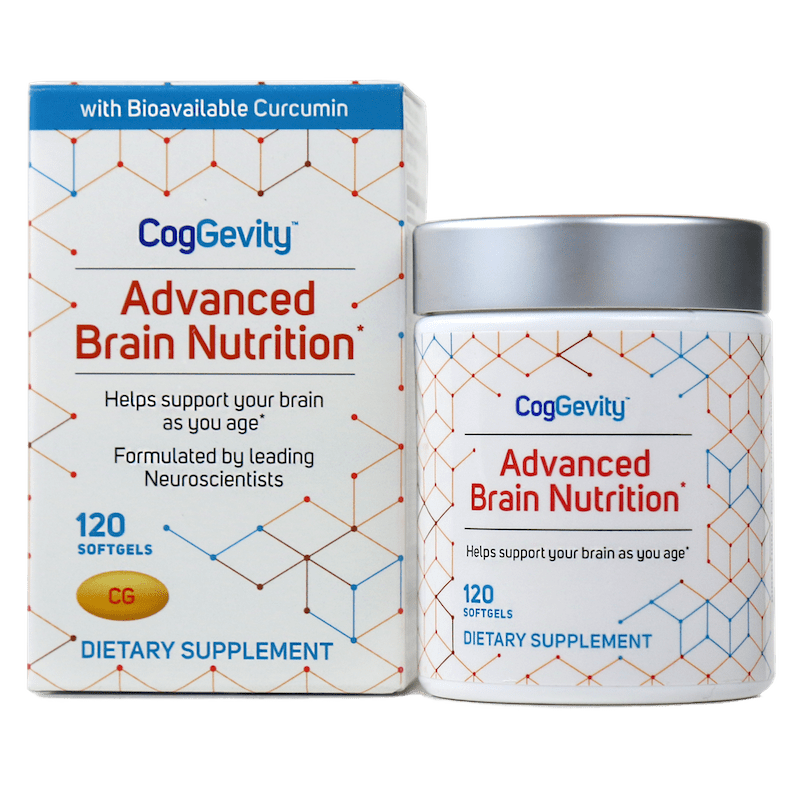Why The Brain Needs Sleep

Insufficient sleep is a public health issue, with an estimated 50 to 70 million adults in the U.S. having a sleep-related disorder.1 According to the CDC’s Vital Health Survey studying the behaviors of 76,669 adults, nearly 30 percent report sleeping less than six hours per day.2 We often think that our brain should function more efficiently with age, but a study performed in 903 cognitively healthy adults as part of a longitudinal aging study found that sleep problems impact executive function, which may impair our ability to make proper decisions, maintain focus and attention, and stay organized.3 Insufficient sleep not only impacts the operational capacity of our brain but also increases the risk for other health problems, including obesity, diabetes and cardiovascular disease.
Our sleep needs change as we age. If our goal is optimizing brain health, getting adequate sleep is critical as it plays an essential role in clearing the accumulation of neurotoxic waste as well as beta amyloid plaques and tau tangles, the biological markers associated with Alzheimer’s disease (AD).4 This clearance system has been discovered to be inefficient during the daytime; therefore, getting a restful sleep can be considered a lifestyle factor that may help to prevent AD.5 In support of this, recent research published in the journal Neurology reports that poor sleep has been associated with increased buildup of the amyloid proteins in the cerebral spinal fluid of cognitively healthy adults at risk for AD.6 Given that the accumulation of the plaques present in Alzheimer’s disease may begin to manifest in the brain 20 years prior to the onset of symptoms,7 the lifestyle habits that we embrace today can significantly reduce our risk of mild cognitive impairment as we age.
 According to the National Institutes of Health, adults require a minimum of seven to eight hours of continuous sleep to maintain mental alertness and to feel well rested.8 When we sleep, several important processes occur in the brain, including (i) the consolidation of memories from short-term storage into long-term storage9; (ii) the clearance of toxic debris from the brain10; (iii) and emotional processing.11 Unfortunately, as people age, sleep often becomes interrupted or altered for a variety of reasons, including prostate issues, untreated sleep apnea, pain, psychiatric issues, fluctuations in hormone levels and side effects of medications, presenting challenges to either initiating sleep or staying asleep.
According to the National Institutes of Health, adults require a minimum of seven to eight hours of continuous sleep to maintain mental alertness and to feel well rested.8 When we sleep, several important processes occur in the brain, including (i) the consolidation of memories from short-term storage into long-term storage9; (ii) the clearance of toxic debris from the brain10; (iii) and emotional processing.11 Unfortunately, as people age, sleep often becomes interrupted or altered for a variety of reasons, including prostate issues, untreated sleep apnea, pain, psychiatric issues, fluctuations in hormone levels and side effects of medications, presenting challenges to either initiating sleep or staying asleep.
Tips for getting a restful sleep:
- Prepare for bed 90 minutes prior to sleep. This means turning off the television, refraining from computer use (as computer screens emit blue light, which stimulates the brain), and dimming the lights to support the brain producing melatonin, the hormone that initiates sleep and sets the sleep-wake cycle.
- Try to refrain from eating three hours before you go to bed, so you have time to fully digest your meal prior to sleep. This will help to prevent GERD, or acid reflux, which is commonly associated with sleep issues.
- Refrain from consuming alcohol before bed as it will lead to a poor quality of sleep. It prevents the body from going into the deeper sleep cycles.
- Establish a consistent sleep cycle by going to bed at the same time each night and waking up the same time each day.
An additional step you can take to support brain health is by including CogGevityTM Advanced Brain Nutrition as part of your daily regimen. CogGevityTM is a new dietary supplement designed to promote healthy brain function and balanced mood when combined with a proper diet and lifestyle. The CogGevity formula is comprised of six thoroughly researched ingredients designed to nourish the brain, including Longvida® optimized curcumin, fisetin, green tea, vitamin D and the omega 3 fatty acids EPA and DHA, combined together in one convenient soft gel capsule.
For more information on diet and lifestyle recommendations to support brain health, I invite you to visit coggevity.com.
- Medicine Io. Sleep Disorders and Sleep Deprivation: An Unmet Public Health Problem. Washington, DC: The National Academies Press; 2006.
- Schoenborn CA, Adams PF, Peregoy JA. Health behaviors of adults: United States, 2008-2010. Vital Health Stat 10. 2013(257):1-184.
- Bernstein JPK, Calamia M, Keller JN. Multiple Self-Reported Sleep Measures Are Differentially Associated With Cognitive Performance in Community-Dwelling Nondemented Elderly. Neuropsychology. 2017.
- Tarasoff-Conway JM, Carare RO, Osorio RS, et al. Clearance systems in the brain-implications for Alzheimer disease. Nat Rev Neurol. 2015;11(8):457-470.
- Xie L, Kang H, Xu Q, et al. Sleep drives metabolite clearance from the adult brain. Science. 2013;342(6156):373-377.
- Sprecher KE, Koscik RL, Carlsson CM, et al. Poor sleep is associated with CSF biomarkers of amyloid pathology in cognitively normal adults. Neurology. 2017;89(5):445-453.
- Sperling R, Mormino E, Johnson K. The evolution of preclinical Alzheimer’s disease: implications for prevention trials. Neuron. 2014;84(3):608-622.
- Health NIo. [https://www.nhlbi.nih.gov/health/health-topics/topics/sdd/howmuch – link no longer active].
- Buzsaki G. Memory consolidation during sleep: a neurophysiological perspective. J Sleep Res. 1998;7 Suppl 1:17-23.
- Jessen NA, Munk AS, Lundgaard I, Nedergaard M. The Glymphatic System: A Beginner’s Guide. Neurochem Res. 2015;40(12):2583-2599.
- Walker MP, van der Helm E. Overnight therapy? The role of sleep in emotional brain processing. Psychol Bull. 2009;135(5):731-748.